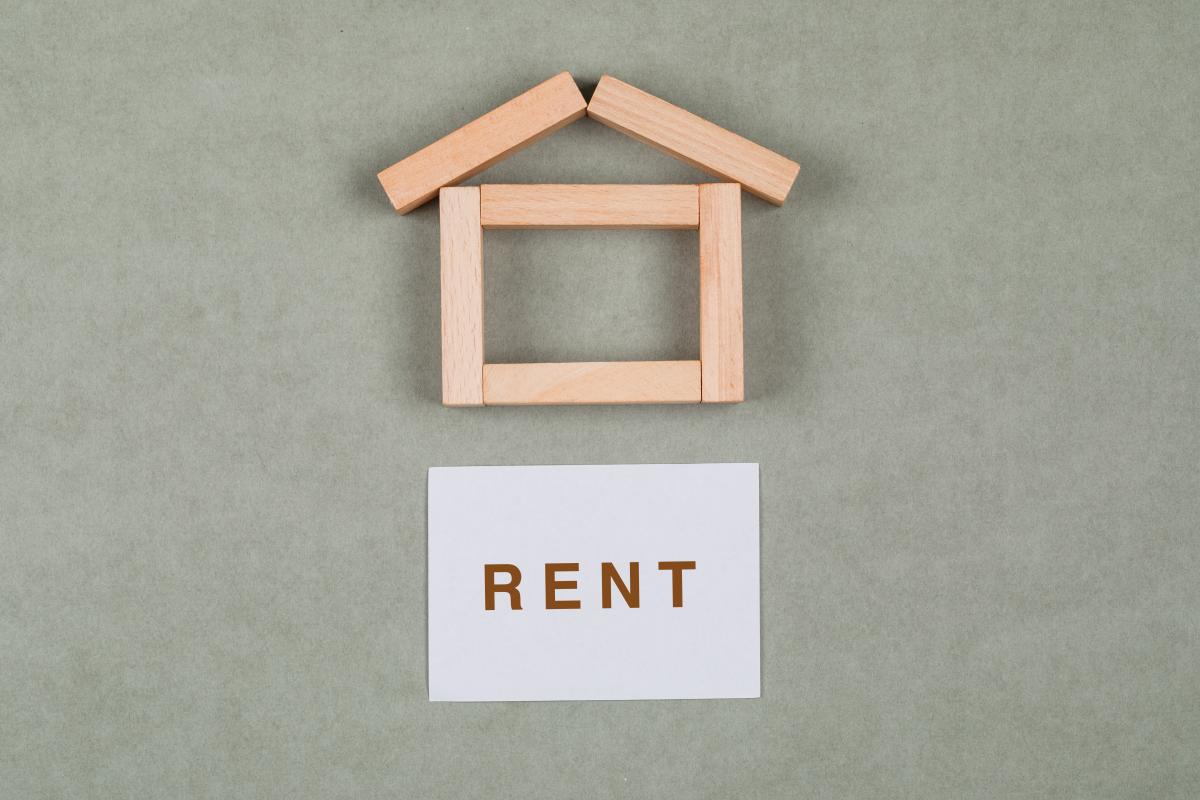



Before embarking on your search for a rental property to settle in, it is important to familiarise yourself in advance with all the rights and obligations you need to consider in your role as a tenant. Read more about them here!
Undoubtedly, one of the most important factors in choosing an apartment to rent are the terms written into the contract and the relationship with the homeowner. It is important that all the details such as the period of the lease, the amount of monthly rent and the way it is to be paid, as well as the rights and obligations of both parties are detailed in a timely manner.
Additional clauses would also be useful to clarify who is obliged to cover the cost of repairs and what the owner's requirements are for keeping pets, for example.
It is very important that as a prospective tenant you read the lease in detail and read the terms carefully so that you do not find yourself at a disadvantage later on. In addition, a focused reading makes it possible to identify contentious clauses early on and discuss any changes to their content in order to reach a mutual agreement.
It is advisable to specify in the lease agreement the term of its validity, the rental price, the amount of the deposit. In addition, it is desirable to include the rights and obligations of both parties to the transaction.
Your basic rights as a tenant include the right to reside in the dwelling in peace and to use its appurtenances, as well as the right to demand repairs from the landlord where significant damage is involved. Tenancies are negotiated under the Duties and Contracts Act (DCA). It is important to be aware that this legislation allows you a great deal of freedom in the negotiation between the two parties, in terms of the ability to be flexible in the terms of the contract. However, there is a requirement that the terms do not contravene good morals and morality and do not violate the law.
As already mentioned, the right to demand the necessary repairs from the landlord and the allocation of the costs of making them are another important topic that it is important to familiarise yourself with beforehand. Under the Duties and Contracts Act, it is the landlord who has the responsibility to bear the cost of carrying out major repairs, while smaller repairs are the responsibility of the tenant. These usually consist of repainting, replacing outdated or broken locks, furniture fittings and similar cosmetic interventions. When it comes to serious damages that concern the general structure of a building - roof repairs, replacement of plumbing fixtures - the cost of the repairs should be borne by the landlord.
It is also important to know that if any problems are found at the time of renting the home, it is advisable to note them in the acceptance report. This will save you the headache of being held liable later for damage and depreciation that is not your fault. In addition, you should bear in mind that decisions on alterations to the interior of the home must be submitted to your landlord in advance for their consent.
To avoid any unnecessary hassle around ending the tenancy, it is a good idea to draw up a notice to quit form. The landlord can prepare such a notice to quit form in advance. Required elements of the notice to quit are the details of both parties to the tenancy, the date on which the notice is given, the date on which it will take effect and the signature of the person giving the notice.
The right to freedom from harassment and unlawful eviction relates to activities of a different nature that would interfere with your ability to rely on your rights as a tenant. Harassment by your landlord could take the form of entering the property without your knowledge or permission (except in cases that require urgent intervention by your landlord), cutting off the electricity to the property, using verbal and physical abuse against you.
Unlawful eviction consists of your landlord trying to force you to leave the property without following the legal procedure. It is good to know that harassment and unlawful eviction are defined as criminal offences, and those who commit them are liable to punishment.
Also, the landlord has a duty to ensure your quiet enjoyment of the property and to protect you from third party interference and has a duty to protect you if, for example, neighbours cause you a nuisance.
In the event that any of your rights are violated in any way by the landlord, and in the event that your landlord does not comply with the terms of the contract, you have the right to hold them accountable. If you cannot clarify the situation and find a solution to the problem through dialogue, you have the right to seek your rights in court. For this purpose, several conditions are necessary - in addition to hiring a lawyer, it is crucial to have a valid rental contract signed by both parties and presenting clearly defined clauses. Although there is no explicit requirement that the agreement be notarised, you should bear in mind that this is a good practice through which your rights can be further secured.
It's important to know that when you pay your monthly rent, your landlord is required to give you a receipt. This document contains information about the day, the exact amount and the reason for receiving the amount, in this case it is rent paid. The receipt itself is a must for any landlord, no matter what type of property is being rented - a home, lot, loft, shop, etc.
Also, if you have been a faithful tenant with your landlord and have met your obligations promptly, as well as being good stewards of the property, then your deposit should be fully refunded. If you are refused, you have every right to seek professional assistance from a solicitor to claim the deposit through the courts. However, for this purpose, an acceptance report must be attached to your tenancy agreement.
Among the most important obligations of a tenant are the payment of the agreed rent amount within the specific term according to the contract, as well as the regular repayment of utility obligations.
The purpose of the property shall not be changed and neither shall the use of the premises for the purposes intended, this being by express agreement in the contract. For example, if you want to rent an apartment in an apartment building with the idea of converting it into a shop or office space, you need to have prior consent from the owner. In addition, it is legally necessary to change the use of the property. Very often, landlords are reluctant to undertake this type of change as the procedure requires a lot of time, effort and financial resources. And although conversion does not involve construction work, the law treats any change of use of a property (dwelling, office, shop) as a separate new construction.
The tenant must keep the property in the condition provided by the landlord and maintain it. Thus, if any damage is done to the property or to the existing belongings, he is obliged to repair the damage or replace what is broken. In the event of damage which is not the result of your being a tenant, but is due to the natural depreciation of furniture and appliances, you are obliged to notify your landlord promptly.
In addition, the tenant may not sublet the unit to any third party except with the written consent of the landlord. In this situation, however, the tenant's obligation to pay the rent regularly remains in effect. After the expiry of the lease, the tenant shall be obliged to deliver the dwelling in the condition in which he rented it. Otherwise, you owe compensation to the landlord, unless you can prove that the damage is not the result of you being in the property.
Therefore, check carefully for any damage, defects and wastage that may have occurred during your stay, both in the condition of the appliances and furnishings and in the overall appearance of the property.
In many cases, the tenancy is also bound by a handover report, which may be a detailed list of the property's furnishings and equipment, stating their condition.
As already mentioned, it is also the landlord's right to require a deposit. The deposit brings additional security to the landlord that in the event of damage caused by the tenant, they will have money to use to repair the damage. In the mass case, the value corresponds to the amount of one month's rent, but the possibility of individual negotiation is not excluded.
When you leave the luxury home you have been staying in, you must make sure that all belongings and furniture are in place when you move in. This could make it difficult for you, especially if you have been occupying the home for a long time, as usually in a long term tenancy, most tenants change the placement of some of the furniture to ensure comfort and convenience in their daily needs. However, do your best to bring the property up to the condition in which it was handed over to you for use by your landlord. This will save your landlord the unpleasant impression of your attitude, as well as the commitment of putting time and effort into activities that are really entirely your responsibility. Last but not least, you will be able to preserve good manners and honesty in the relationship established between you.
The termination of the tenancy agreement depends on the term for which it was concluded. If the agreement is concluded for a specific term, it is terminated at the end of the specified term. If both parties to the agreement wish to continue their relationship, it may be renewed after its expiry. However, the terms of the agreement can be changed. If the tenant continues to occupy the property after the expiry of the agreement, with the landlord's express consent, the agreement is deemed to have been extended indefinitely.
Early termination of the tenancy agreement is possible by either party, either at will or for breach of any of the clauses described therein. As we have already said, termination may be effected unilaterally, by written notice, or by mutual agreement, by concluding a termination agreement.
From your position as a tenant, you have the right to end the tenancy, but to do so it is essential that you comply with the requirement to give notice to vacate the property. However, if circumstances require you to leave immediately, you must be prepared to pay compensation to the landlord, which is usually one month's rent. Also, as a tenant, you are entitled to benefit from compensation to claim from your landlord. It is an available option if the landlord decides to terminate your tenancy before the end date specified in the agreement.